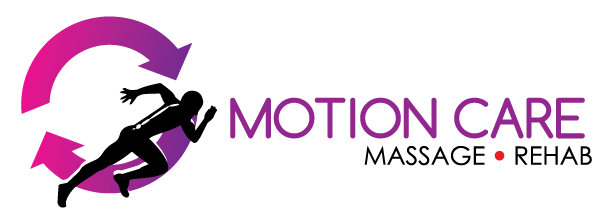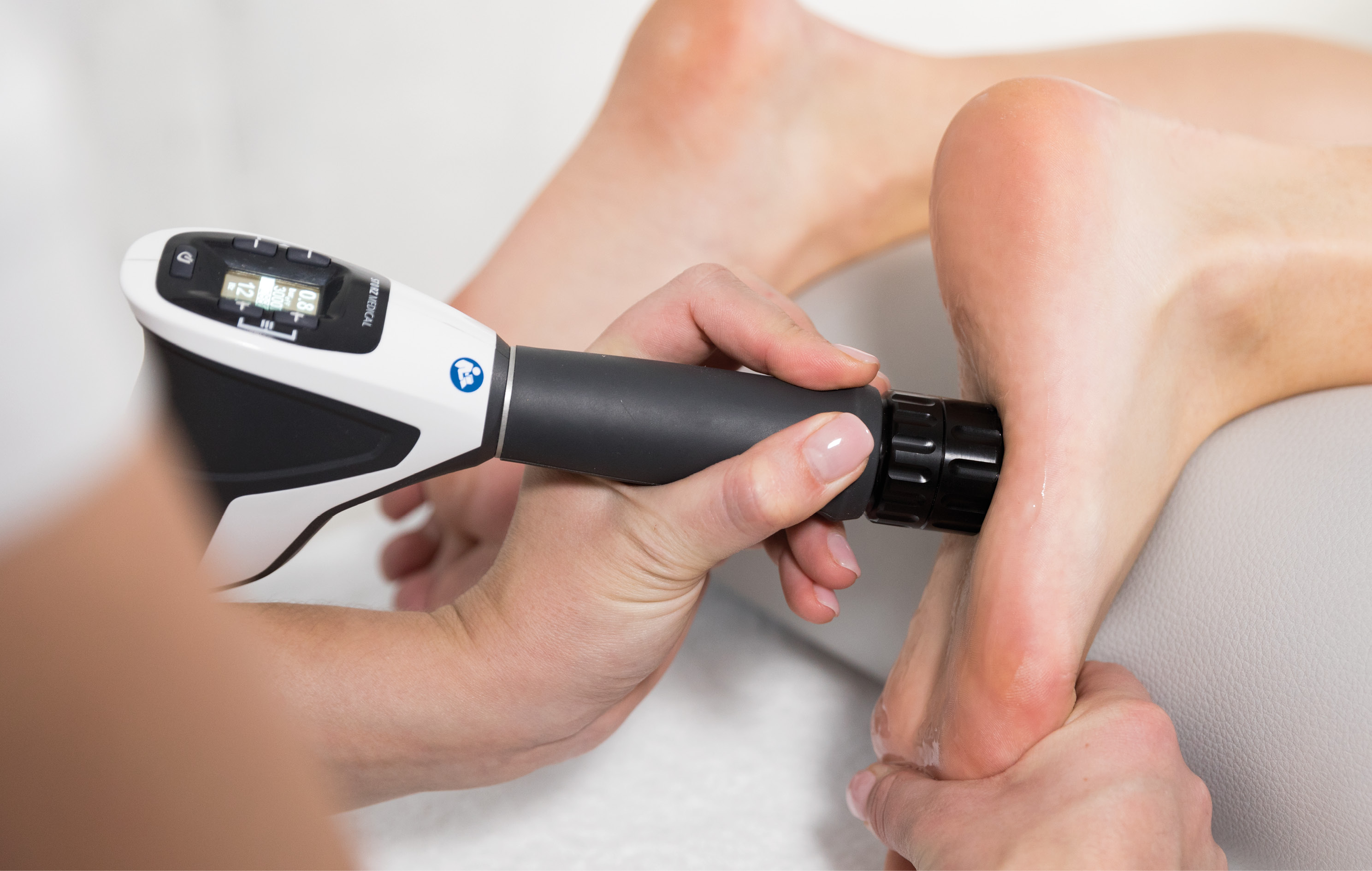Shockwave Therapy in Toronto & North York
What is Shockwave Therapy?
Shockwave therapy, which is also known as extracorporeal shockwave therapy (ESWT), was initially used to treat kidney stones. The procedure involved targeting the kidney stones with concentrated pressure waves to break them into smaller pieces without surgery. They could then be passed through the urinary system painlessly and eliminated from the body.
Since then, shockwave therapy has been adapted and refined to treat a range of conditions and injuries. The energy level and intensity of the waves are now adjusted depending on the area being treated so that they are strong enough to have a therapeutic effect but not so strong that they cause damage to healthy tissue surrounding the targeted site. Modern shockwave therapy devices are very focused, so the treatment is only applied to a limited area.
Shockwave therapy is what Toronto athletes choose as their go-to treatment for musculoskeletal injuries and pain, and doctors are increasingly recommending it rather than having patients undergo surgery or other invasive procedures.
How Does Shockwave Therapy Work?
Shockwave therapists in Toronto administer treatment using a small hand-held device that is held over the affected area. Rapid, high-energy pressure waves target the injured tissue, causing micro-trauma to the area. Due to this trauma, the body accelerates its healing response by increasing blood flow to the area, releasing growth factors, stimulating new cell growth, producing higher levels of collagen, and reversing chronic inflammation.
If Shockwave Therapy Causes Trauma, How Does It Promote Healing?
While “trauma” does sound negative, in shockwave therapy, the damage is microscopic and targeted. It stimulates the body’s natural healing processes, including increasing blood flow to the area, reducing inflammation, producing more collagen, alleviating pain, and facilitating the development of new blood vessels in the area.
What Conditions Can Be Treated by Shockwave Therapy in The Toronto Area?
Shockwave therapy has become Toronto residents’ treatment of choice for a wide range of chronic conditions, including but not limited to:
- Plantar fasciitis
- Frozen shoulder (adhesive capsulitis)
- Achilles tendinopathy
- Lateral epicondylitis (tennis elbow)
- Patellar tendinopathy (jumper’s knee)
- Medial epicondylitis (golfer’s elbow)
- Shin splints
- Bone non-union (broken bones that have failed to heal)
- Hallux rigidus (stiff toe)
- Stress fractures
- Hamstring injuries
- Bursitis
- Myofascial pain syndrome
Shockwave therapy can also be used to treat calcification (excess deposits of calcium on tissue), as seen in heel spurs and calcification tendonitis. Similar to the way it acts on kidney stones, shockwave therapy splits the calcium deposits into smaller pieces so that they can be removed by the body naturally. Another novel use for shockwave therapy is breaking down scar tissue from surgery or burns, improving their appearance and restoring elasticity to the skin.
Researchers continue to investigate additional applications for shockwave therapy, including carpal tunnel syndrome, osteoarthritis, and post-stroke spasticity.
Is Shockwave Therapy Painful?
Shockwave therapy at our Toronto clinic is administered by therapists who are trained to assess the patient’s pain tolerance and monitor their level of discomfort. Although patients may experience some pain, their treatment specialist can adjust the intensity of the shockwaves to minimize it. It is important to note that the treatments are very short, making them much easier to tolerate than other treatments for the same conditions.
The treated area may be a bit sore the next day, but no more than what a typical adult might feel after an intense workout. Slight bruising might also occur.
Does Shockwave Therapy Have Side Effects?
Other than the soreness and bruising mentioned above, patients sometimes report numbness and mild swelling in the treatment area. This is primarily due to the healing that takes place after shockwave treatment. More severe side effects are extremely uncommon, and patients should follow up with their doctor if they experience anything concerning.
How Effective Is Shockwave Therapy?
Shockwave therapy is remarkably successful in treating musculoskeletal conditions and chronic pain. It has been shown to accelerate the healing process and to be equally effective as corticosteroid injections and surgery for certain conditions.
Note that not all patients respond to shockwave therapy, but research into the most effective ways to administer this treatment is ongoing. Researchers are also investigating the effectiveness of using shockwave therapy in combination with other treatments such as massage, manual therapy, and strength training.
Does Insurance Cover Shockwave Therapy in Toronto?
Ontario provincial healthcare insurance does not currently cover shockwave therapy, although that may change as it becomes a go-to treatment for many people. Private health insurance does typically cover the cost of shockwave therapy in Toronto, but patients are advised to check with their provider in advance.
Shockwave therapy in Toronto is quite affordable. The reduction in pain and improvement in mobility and functioning can make this treatment worth the expense, even if the patient has to pay out of pocket.
Pricing
- Initial
- 40 Min $195
- Follow-Up
- 10 Min $115
- 20 Min $150
- 40 Min $180

